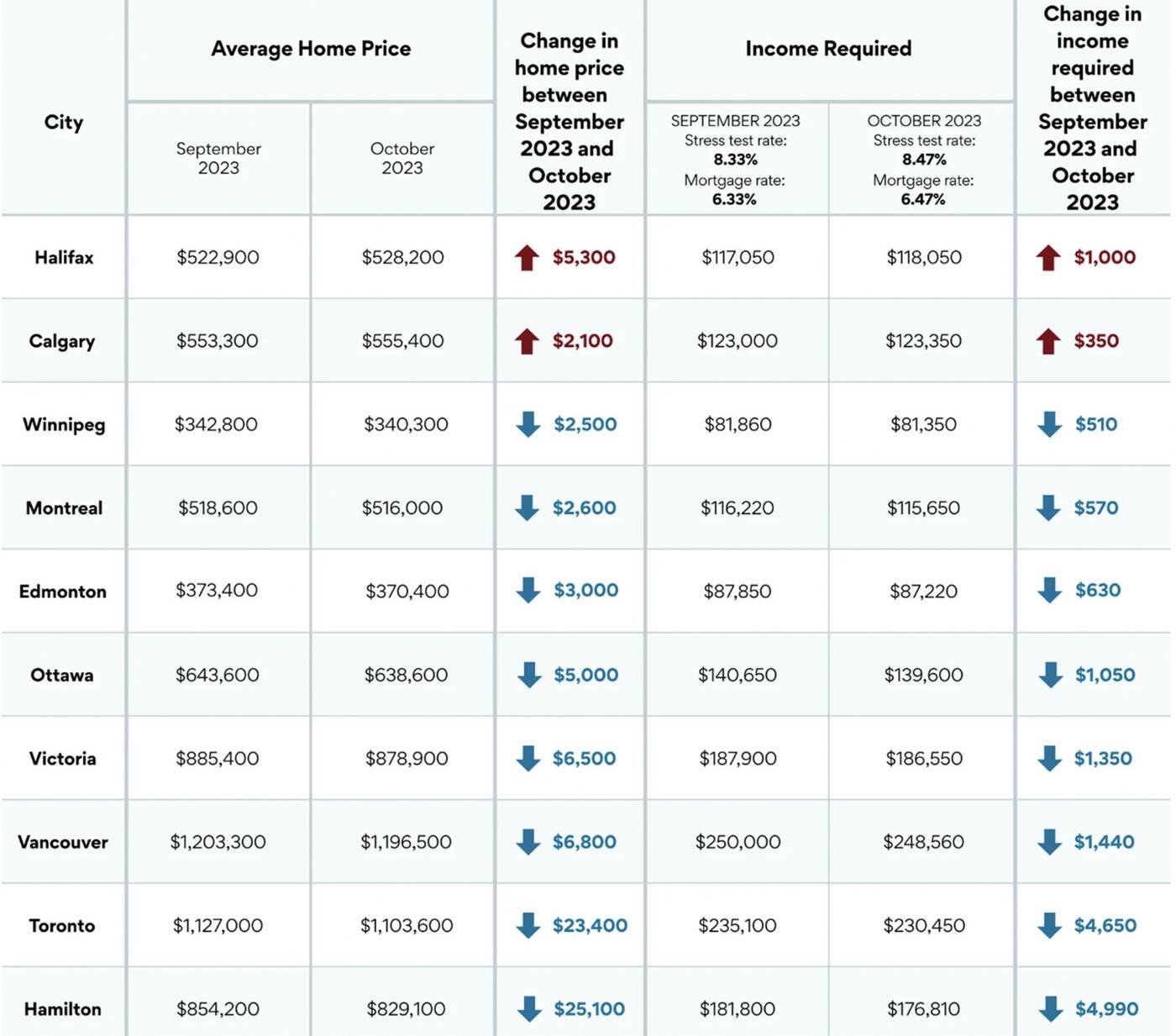
Here's what income bracket you need to be in to afford a home in Toronto right now
It looks like high lending rates are finally starting to take a more noticeable toll on Toronto's housing market.
A new report from Ratehub.ca claims that homes in the city are becoming a bit more affordable now that most would-be buyers (read: investors) have been sidelined for so long.
Even though there were 50 per cent more active listings in the GTA last month than at the same time last year, sales have been in a downturn, with the few who aren't priced out of the market wanting nothing to do with in its turbulent, uncertain state.
Some experts have bemoaned that the average home in the city now costs 210 per cent more than a household with the average income can manage, and that even a slight dip in prices hasn't made real estate any more affordable.
However, newer findings in this week's report are more positive.
"Home prices have been softening in markets across Canada in recent months, but steep mortgage rates prevented any widespread improvement in housing affordability — until now," the mortage brokerage and comparison site writes, noting that per its own data, "home prices have indeed decreased by a large enough margin to ease qualification for many buyers in October."

Toronto may have the second-highest average home price of the cities examined in Ratehub's latest affordability report, but the income needed to purchase at current rates is now falling month-over-month. Chart from Ratehub.ca.
While Toronto's notoriously exorbitant prices still bar many from getting their foot into the door of home ownership, Ratehub's numbers do show that Toronto saw the second-largest jump in affordability of all markets surveyed between September and October after only Hamilton.
While places like Halifax and Calgary got more expensive (by $5,300 and $2,100, respectively), Toronto got significantly less so: the average home price dropped $23,400 (from $1,127,000 to $1,103,600) over the course of the month.
With current stress test and mortgage rates, this means a household must now earn $230,450 per year to cover the cost of the average home — nothing to scoff at, but $4,650 less than was needed just a month prior.
T.O. is one of eight that got more affordable from one month to the next, including Montreal, Ottawa, Vancouver, Edmonton and Winnipeg, the latter of which is the cheapest for real estate out of the 10 locales analyzed, with an average price of just $340,300, which necessitates a household income of $81,350 to float.
Every other city, with the exception of Edmonton, requires households to rake in six figures to become homeowners in the current landscape, from the $115,650 annually required to buy in Montreal to the $248,560 needed in Vancouver.
These figures are based on mortgage bills at present rates with a 20 per cent down payment and 25-year amortization period. They also take into account $4,000 per year in property taxes and $150 per month in heating bills.
Of course, Ratehub notes that moving forward, affordability relies on Bank of Canada interest rates — while lower rates mean more affordability, they are "likely to spur sidelined homebuyers back into the market, which could drive home prices higher once again."
Chestnut Park Real Estate Limited, Brokerage via Strata.ca
Latest Videos
Latest Videos
Join the conversation Load comments







